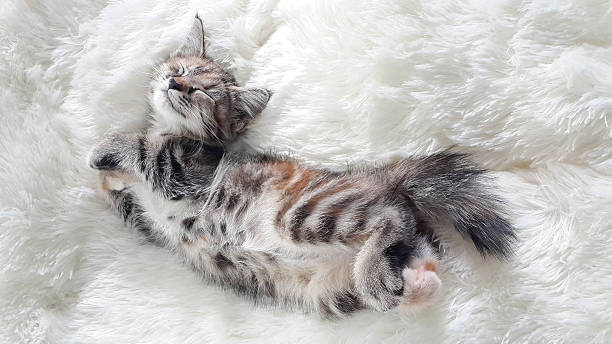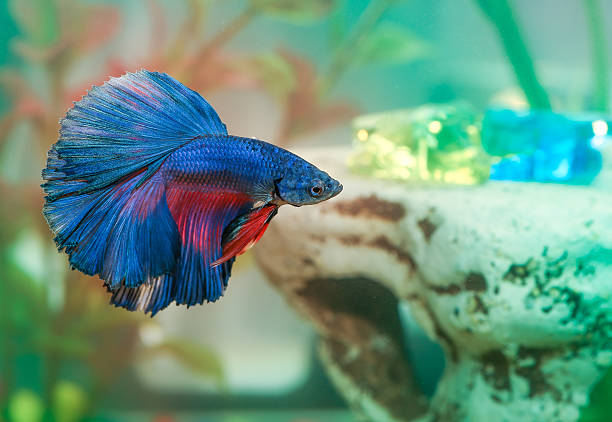8 Kitten Care Tips For First Time Owners
If you're a first-time cat owner and planning to purchase a kitten from the animal shelter, it's important to be prepared. Cats can make excellent pets if cared for properly, but caring for kittens is a lot different than caring for adults. Here are 8 kitten care tips that will help you raise independent and confident cats that will make your life a little less busy.
1.Create a safe environment for your kitten
The first thing you need to do is create a safe environment for your kitten. There are some things that can be bought, such as a scratching post, but you also want to make sure that everything else in your home is safe for the kitten. You can buy kitten-safe pouches or make them yourself out of old t-shirts.
You also need to make sure that there are no electrical cords or wires near where your kitten will be sleeping or playing. Therefore, if you have any loose wires, you should wrap them in tape or put them behind furniture so they cannot be pulled out by accident.
Additionally, if there are any small items around your house that could cause harm to your kitten if they swallow it (such as buttons), it's best to keep those items out of reach so they don't get into trouble by trying to eat something harmful instead of their regular food.
2. Provide your kitten with food and water
Providing your kitten with food and water is an important part of taking care of your new pet. Kittens need to eat often, and they tend to get hungry at night, making it difficult for first-time owners to keep up with their kitten's needs. Luckily, there are several ways you can make sure your kitten is well-fed.
First, get high-quality kitten food that's designed to meet their nutritional needs. Kitten food comes in many flavors, so make sure you choose one that appeals to you—this will encourage you to feed your kitten more often.
Second, consider buying a slow-feeder bowl. These bowls allow cats to nibble on their food without gulping it down too quickly, which can lead to stomach problems such as diarrhea or vomiting later on down the road.
Thirdly , consider adding wet foods into your kitten's diet at least once per day; this will provide extra hydration for them while also giving them something tasty (and healthy) to snack on during those nighttime hours when they're most likely going hungry!
3. Groom your kitten regularly
It’s a subject that’s often overlooked, but should be considered an important part of caring for your cat. The first reason why this is important is because grooming helps you bond with your new pet. When you brush them or trim their nails, it gives you a chance to get up close and personal with them—to touch them and interact in a positive way. It can also help build trust between you and your kitten.
Secondly, grooming helps keep their coat healthy and clean! Brushing removes dirt and debris from their fur, which can get embedded into the coat if not removed regularly. It also helps distribute natural oils throughout their fur so that they stay shiny and soft—and smelling fresh! Trimming nails will prevent them from growing too long and causing damage to furniture or people.
More importantly,iIt makes it easier to spot parasites. Fleas and ticks are common parasites that can make both humans and pets very sick if left untreated. Having long hair makes it difficult to see these pests if they're living inside it but if you groom your pet regularly then they'll be much easier to spot before it becomes too late!
4. Buy them toys
Buying them toys is an excellent way to keep your little friend happy and healthy and ensure that they grow up feeling safe and secure.
This is because cats need stimulation, playfulness, and exercise in order to stay happy. Without these things, they can become bored or depressed, which is not good for their health.
Toys are also great at keeping cats active, as they will want to chase after them if they're moving around. This helps with their muscle tone and makes sure that they stay flexible enough to use the litter box properly (which is important for preventing constipation).
Hence, if you want to make sure that you're getting the right kind of toy for your cat's age, size and personality type then it's best if you ask an expert at a pet store or vet clinic about what kind of toys your kitten would like best!
5. Give them a quality litter box
It's easy to forget, but cats are very particular about their bathroom habits. A good litter box will help you keep your cat happy and healthy. Choosing a solid litter box for your new kitten can be a bit overwhelming, especially if this is your first time owning a cat. There are so many options that it can be hard to know where to start!
We also think the best way to find the right litter box for your cat is by identifying the specific needs of your pet. Some cats like covered boxes while others prefer an uncovered one. You also want to consider whether or not you want something that has liners or if you'd rather go without them. Some owners like using liners because they keep the smell contained within the box itself while others don't like it because it's more difficult to clean out when there are liners in place.
Additionally, there are other things that you should consider as well such as size and type (scoop-free vs non-scoop free). If you have multiple cats then having multiple boxes is essential since one cat may not take kindly towards sharing their space with another feline friend!
6. Get your kitten vaccinated by a vet
This is one of the most important things you can do for your kitten, and it's something that new cat owners often forget to do—get their kitten vaccinated! The first time you take your kitten to the vet, you'll probably have questions about how much they weigh, what they eat, and how much they drink. Vaccinating them can seem like a minor detail compared to these other aspects of care, but it's actually one of the most important things you can do for them.
Vaccinations will help keep your cat healthy in multiple ways such as keeping them from getting sick from certain diseases and infections that could affect their health or even kill them. Even if they do get sick after being vaccinated, it will be less severe than if they hadn't been vaccinated at all.
The best part is that, if they are unlucky enough to contract one of these diseases or infections anyway despite being vaccinated against it, they'll recover faster because their immune system has been strengthened by vaccination (this means less time spent feeling sick, too).
7. Neuter your kitten as soon as possible
The neuter surgery is a procedure that removes the testes from a male cat, rendering him incapable of siring kittens. It also renders him unable to develop cancer of the testicles and prostate gland in later life. The procedure is performed under general anaesthetic and takes about 15 minutes per cat.
If you are thinking about getting a kitten for the first time, then it is strongly recommended that you neuter your kitten before he reaches sexual maturity at around six months old. The procedure will prevent unwanted pregnancies, reduce the likelihood of certain cancers and ensure that your cat doesn't spray to mark their territory.
8. Play with your kitten
It's important to play with your kitten, especially if you're a first-time owner. Playing with your kitten can help you build trust and bond with them. They will also learn that you are fun to be around, which is important for their mental and emotional development.
Play time can also help your kitten to become more comfortable with the world around them by introducing them to new experiences and environments at a gradual pace. This helps them adjust to new situations in a way that's less overwhelming than it would be otherwise.
That’s why, if you're a first-time owner, playing with your kitten will not only help you get used to having a pet in your home, but it's also beneficial for them!
Hopefully, these kitten care tips will help you along the way if you are new to pet ownership. They are obviously not a substitute for veterinary care but they can serve as a solid foundation for building your knowledge base and preparing yourself for life with a new feline friend.
For more helpful and informative insights, visit here.





